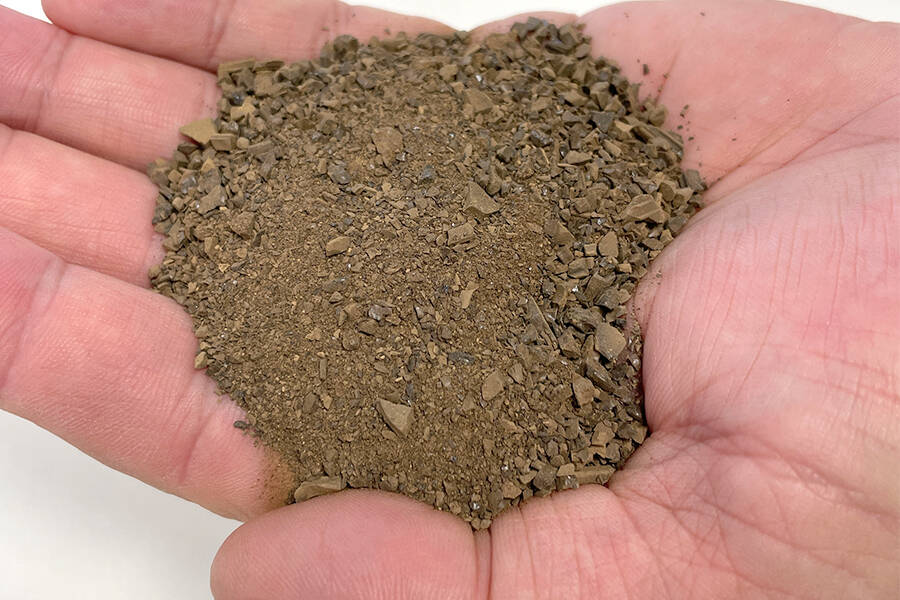Fertilizer with high production rate and product purity
How do you achieve maximum product purity and high throughput rates when screening hygroscopic diammonium hydrogen phosphate (DAP)?
Diammonium hydrogen phosphate (DAP) is an essential component of many fertilizer compositions due to its high phosphorus and nitrogen content. When screening DAP, producers are faced with the challenge of ensuring fine and homogeneous particle sizes, while at the same time guaranteeing a high production rate and product purity.
Challenges in the sieving of DAP
Screening DAP is technically challenging as the material is hygroscopic, i.e. it absorbs moisture from the ambient air and has a tendency to form agglomerates. These agglomerations make it difficult for the material to pass through the screen meshes and impair the efficiency of the screening process. In addition, high throughput rates can lead to blinding and clogging of the screen mesh, which can result in the screening process having to be completely interrupted, bringing the entire production process to a standstill.
Precise screening using innovative technology
RHEWUM specializes in screening challenging materials such as DAP and offers tailor-made solutions for these tricky requirements. Our screening machines are characterized by their robust design and sophisticated screening technology, which enables efficient separation even under the most difficult conditions. The use of high-frequency vibration systems and precisely adjusted screen cloths achieves a high degree of separation efficiency, ensuring uniform particle size distribution.
A special feature of RHEWUM screening machines is the option of continuous cleaning of the screen decks, which prevents clogging and optimizes the material flow. This is particularly advantageous when screening hygroscopic materials such as DAP, as the screen meshes remain free of adhesive residue to ensure consistently high screening performance and continuous production.
In addition, the individual design of the RHEWUM machines enables easy adaptation to different production requirements and throughput quantities. The high precision and reliability of the machines help to ensure that DAP can be sieved in the desired quality and with minimal losses.
Conclusion
The screening of diammonium hydrogen phosphate poses a particular challenge due to its physical properties. With RHEWUM’s advanced screening machines, these difficulties can be effectively overcome. By combining high-frequency screening technology, continuous cleaning and customizable machine configuration, RHEWUM offers a solution that ensures consistently high product quality and efficiency in DAP production.



